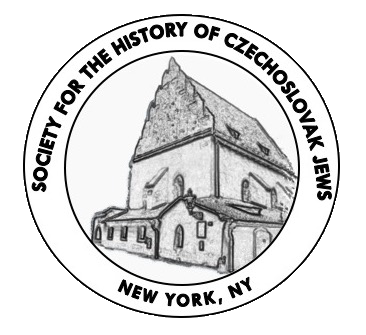My Terezin Diary, a Memoir, by Zuzana Justman
Zuzana Justman, born Zuzana Pick, is a Czech-American maker of documentary films and writer. She was born in former Czechoslovakia. After surviving two years at Theresienstadt concentration camp during World War II she, her mother, and brother returned to Prague. Following the communist takeover of Czechoslovakia in 1948, she and her mother emigrated to Argentina.
In 1950 Zuzana moved to the United States to pursue undergraduate and graduate education. After working as a writer and translator, in the late 1980s, she started filmmaking. She has filmed most of her documentaries in the Czech Republic and other European countries, and her topics have been the Holocaust of World War II and postwar history.
Her story My Terezin Diary was published in The New Yorker on September 9, 2019. It was also published in German translation in Switzerland in Das Magazin in January 2020.
Personal History September 16, 2019 Issue
My Terezín Diary
What is most striking to me today about the diary I kept in the camp, seventy-five years ago, is what I left out.
By Zuzana Justman
On a freezing day in January, 1944, after my family and I had been confined at Terezín for six months, my mother was arrested by the S.S. and placed in a basement cell in the dreaded prison at their camp headquarters. Not even her lover, who was a member of the Terezín Aeltestenrat, or Council of Elders—the Jewish governing body—could get her released.I was twelve years old, and I was afraid that I would never see her again. But on February 21, 1944, all I wrote in my diary was “Mommy was away from us.”What is most striking to me today about the diary I kept seventy-five years ago is what I left out.
I kept the diary from December 8, 1943, until March 4, 1944—the first winter of the two years I was imprisoned with my parents, Viktor Pick and Marie Picková, and my brother, Bobby, in the Czech concentration camp. (The camp was also known as Theresienstadt.) In addition to eight entries, it contains a few drawings, a poem about snow, and a story dealing with Terezín morality. Right after the war, I added a list of my girlfriends, marking the names of those who did not survive with a minus sign.
When I first returned to the diary, many years ago, I found it difficult to read. Picking up the small book, three inches by four inches, with its cover of frayed green leather and its entries in tiny writing, I was not ready to be reminded of that terrible first winter in Terezín. I did not have much patience with my childish pronouncements (“Now I see, though, that it is possible to find happiness in work and in other things”) and my determined attempts to look at the bright side (“It will get better with time”).I put the diary away, and then for a long time I could not remember where I had hidden it. It was only a few years ago that I finally discovered it, on a high shelf of my closet, and, to my surprise, I saw it in a new light.

